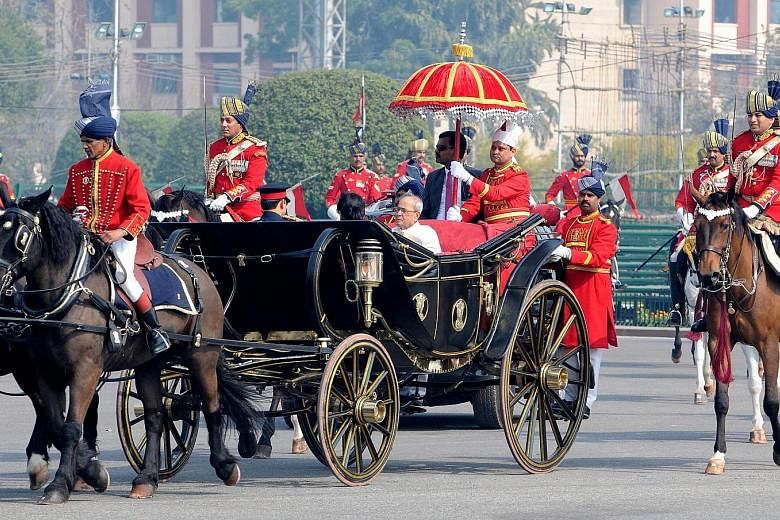NEW DELHI • India's government acknowledged yesterday that its controversial decision to withdraw high-value banknotes from circulation has had an "adverse impact" on the economy as it lowered its growth forecast.
In an annual survey published on the eve of the Budget, the government said "the adverse impact of demonetisation on GDP (gross domestic product) growth will be transitional", while Finance Minister Arun Jaitley said it would have significant implications for the GDP.
In the survey, the government lowered its growth forecast for 2016-17 to 7.1 per cent, down from 7.6 per cent in the previous fiscal year.
But the survey said the "estimate is based mainly on information for the first seven to eight months of the financial year", in other words, before the shock move last November to pull all 500- (S$10) and 1,000-rupee notes from circulation - representing nearly 86 per cent of the cash in the system.
Mr Jaitley said he expected cash supplies would be fully "replenished" by the end of next month and the economy should then "revert to normal", projecting growth in 2017-18 to be between 6.75 per cent and 7.5 per cent.
The survey by the government's chief economic adviser Arvind Subramanian said the so-called demonetisation scheme had a series of negative impacts, including job losses and a decline in income for farmers.
Speaking at a press conference in New Delhi, Mr Subramanian said that "there have been short-term costs which are real and significant".
"Growth slowed as demonetisation reduced demand... and increased uncertainty," said the survey. It did, however, say that the scheme "could be beneficial in the long run" if it leads to a fall in corruption and fewer cash transactions that are mainly designed to avoid paying taxes.
By painting demonetisation as a blitz on corruption and cash hoarding that will ultimately boost tax revenues, Prime Minister Narendra Modi has so far escaped a major backlash.
While there were massive queues outside banks in the weeks after Mr Modi's surprise announcement, they have now subsided, while limits on withdrawals have eased.
India's central bank announced late on Monday that it would ease some of the restrictions on cash withdrawals, although most savers are still allowed to withdraw a maximum of 24,000 rupees in cash each week.
The cash crunch has already prompted the International Monetary Fund to knock a percentage point off its forecast for India's economy in the current fiscal year to 6.6 per cent, putting it below China's projected rate of 6.7 per cent.
Mr Sunil Sinha, principal economist at India Ratings & Research, said it was unusual for the government to give such "a huge range" in its growth projection.
"The very fact that it has used such a huge range of 75 basis points means that there are a lot of gaps in terms of estimating the effects of demonetisation and it is quite obvious that the spillover effect will be felt in the next fiscal year as well," Mr Sinha added.
AGENCE FRANCE-PRESSE

